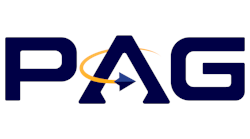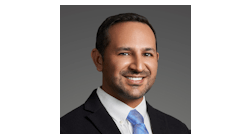This column has addressed many of the specifics of aviation products liability coverage – the need for it, parameters, and costs. But what if you already carry this insurance? How do you evaluate your coverage – is it enough? Are you getting a good value for your insurance dollar? What should you be expecting in terms of services from your broker and your insurance underwriter?
These questions, and many others, should be asked, and answered, every year during the renewal process. Many MRO and aftermarket facilities put their insurance programs on autopilot and neglect this critical opportunity to conduct an annual evaluation of your risk management.
A qualified broker should lead you through an evaluation as part of your renewal each year, and will build plenty of time into your insurance program to do so. NationAir clients typically following a schedule like this:
- At a mid-year review, we discuss and analyze current operations, proposed changes to operations, such as expansions and construction, and create an action plan for upcoming renewal.
- Around four months before renewal, NationAir notifies relevant markets of the upcoming renewal and interviews insurance companies to their level of interest and ability to provide a competitive proposal.
- Over the next two months, underwriters are invited to contact the insured to learn more about operations and answer questions.
- NationAir compiles a complete package of underwriting information from the client, including renewal insurance applications, and a list of current coverage and limits.
- NationAir reviews this package with interested underwriting companies.
- No later than a month before policies expire, NationAir presents multiple options to clients.
This process builds in a window of opportunity to pose additional questions or pursue other options if necessary, and ample time to bind coverage and issue all necessary insurance certificates.
Renewals should never become routine. More often than not, companies and the people who run them ignore potential savings if they’re not paying enough attention at renewal. It’s easy to put insurance in the “out of sight, out of mind” category until a claim occurs, but this is a mistake. The insurance marketplace continues to be very competitive, with potentials for premium reductions because of that competition. You and your broker should be looking for the best possible return for your dollar at every renewal. This doesn’t mean you should change insurers every year but it does mean you should evaluate your options annually.
This is an important part of your broker’s job – to investigate these options and think about them so you don’t have to. Your broker should be presenting you with all of the options available to you during the renewal process. If they’re not performing that basic function, you may wish to consider evaluating your broker. Aviation specialty brokers have more knowledge of market conditions and underwriters, and therefore have a better understanding of potential savings, during renewal time. They also have more direct access and influence to the underwriters involved with your policies, an important consideration.
Remember to give yourself plenty of time before renewals to review your options in both underwriters, and, if necessary, in brokers.



